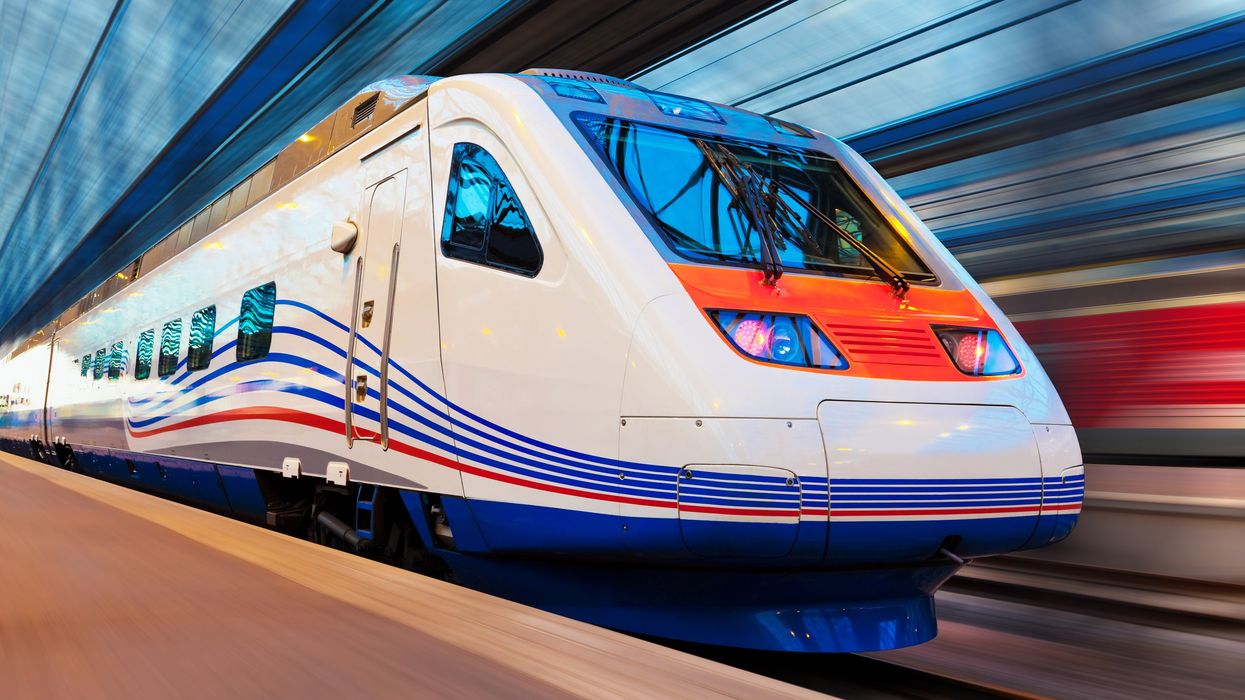Montreal is officially getting a new high-speed train that'll get you to Toronto in 3 hours
It's expected to double the speed of Via Rail's existing trains. 🤯

An example of what Montreal's new modern high-speed train could look like.
All aboard, Montreal! Get ready to trade in those long, tiresome trips for a swift, breezy journey, as Canada is set to roll out a new high-speed train that'll whisk you from Montreal to Toronto in just three hours.
In a Montreal press conference on Wednesday, February 19, Prime Minister Justin Trudeau confirmed the news, describing it as "the largest infrastructure project in Canadian history."
Dubbed "Alto," this sleek, fully electric train is designed to zip along at speeds up to 300 kilometres per hour — which is double the speed of Via Rail's current trains.
The 1,000-kilometre route isn't just a straight shot between Montreal and Toronto; it'll connect Toronto, Peterborough, Ottawa, Montreal, Trois-Rivières, Laval and Quebec City. So, whether you're planning a weekend getaway or a multi-stop trip, Alto would have you covered.
This new rail line would operate on dedicated tracks, freeing passenger trains from the slowdowns caused by sharing space with freight trains.
"Once operational, current travel times will be slashed in half – getting you from Montreal to Toronto in three hours," reads a press release from the prime minister's office. Right now, a VIA Rail trip between the two cities can take anywhere from five to nine hours, depending on the stops.
Trudeau emphasized that this isn't just about speed, though. "A reliable, efficient, high-speed rail network will be a game-changer for Canadians," he said, adding that it will also create tens of thousands of good-paying jobs.
Officials also say that the project will "turbocharge the Canadian economy – boosting GDP by up to $35 billion annually, creating over 51,000 good-paying jobs during construction, and unlocking enhanced productivity for decades to come."
Alto is also a pretty big win for the environment. With a fully electric system, it offers a low-emission alternative to driving or flying, reducing congestion on highways and lowering Canada's carbon footprint.
The project will be developed and operated by Cadence, a consortium that includes major transportation players like Air Canada and CDPQ Infra, the company behind Montreal's new automated commuter rail system.
The federal government has committed $3.9 billion over the next six years to fund the co-development phase, on top of the $371.8 million already allocated in the 2024 budget.
There is a small catch, though. Justin Trudeau recently announced he'll be stepping down as prime minister, with his successor expected to be chosen next month. With a federal election later this year, the long-term future of the Alto project is not guaranteed.
"High-speed rail in this country was always going to be a project that would take long enough to build that it would cover multiple governments … from municipal to provincial to federal," Trudeau said on Wednesday.
"Obviously, future governments will make their determinations about how they invest. But this investment in Canadians, which starts right now, is going to be very difficult to turn back on," he added.
The design phase is expected to take four to five years, with funds allocated at the end of this period. It's not clear exactly how long it'll be until Montrealers are actually riding Alto, but previous estimates from Jean-Yves Duclos, the federal Minister of Public Services and Procurement, suggests it'll be somewhere around 2030.
So, while Canadians won't be hopping on Alto tomorrow, the wheels are very much in motion.
This article's cover image was used for illustrative purposes only.
